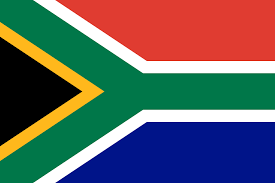Russian Disinformation Popularizes Sputnik V Vaccine in Africa
2021-09-16 19:05:13

In Africa, public opinion is often difficult to measure, whether due to conflict, undemocratic regimes, or a lack of administrative capacity.
The disinformation campaign started on August 11, when the Russian Ministry of Health approved Sputnik V as the world’s first vaccine against COVID-19. The approval itself was, by scientific standards, misleading, since the vaccine had not begun phase III clinical trials. However, Russia’s Ministry of Health doubled down on September 4, claiming it had manufactured the “best vaccine in the world” against COVID-19. President Vladimir Putin made a similar claim during West Africa’s Ebola outbreak, stating that Russia had invented a more effective treatment than any other available globally.
To shape the global discussion of Sputnik V, Russia used a familiar tactic: publish breaking stories that will be widely covered in international media. Russia’s Ministry of Health, unconstrained by international scientific standards, claimed the vaccine’s overwhelming effectiveness. The Russian government then used such flimsy data to back up proclamations that governments worldwide had expressed interest in the Sputnik V vaccine. With its messaging, Russia specifically targeted countries—such as Mozambique, Nigeria, and South Africa—where it competes with Western and Chinese influence. To underline the vaccine’s apparent efficacy, the Russian News Agency stated that as of December 2, one hundred thousand high-risk individuals had already received Sputnik V vaccinations in Russia.
One of the RTP’s most interesting findings was that before Pfizer’s announcement on November 11, the main driver of Russian disinformation throughout Africa was Russian President Vladimir Putin, who accounted for about 5 percent of quotes in traditional media—more than any other person. The next most quoted speaker is the Russian Minister of Health, Mikhail Murashko, at 1.4 percent. In coverage of other vaccines, meanwhile, the most quoted speakers have been heads of national health ministries or chief executives of companies producing vaccines, rather than heads of state.
Putin is front-and-center in the disinformation campaign because his cult of personality helps quell dissent from the scientific community. Putin himself announced the vaccine approval and, as a result, is quoted heavily in Sputnik V’s media coverage. Notably, in 69 percent of monitored traditional and social media outlets and 18 percent of quotes from Putin, the president mentions the administration of the “safe and effective” vaccine to one of his adult daughters—publicly endorsing the vaccine by putting his own family at risk.
Sputnik V’s popularity in African media is troubling, considering the vaccine has not undergone the same rigorous clinical trials as other contenders. The success of Russia’s disinformation and public relations strategy stems from the Kremlin’s ability—and willingness—to disseminate and emphasize its message about Sputnik V’s effectiveness. To counter Russian disinformation in the vaccine space, pharmaceutical professionals and politicians should devote more attention to highlighting the importance of rigorous clinical trials and explaining how vaccines in phase III trials meet acceptable standards. By emphasizing science rather than personally endorsing a “winning” vaccine, the vaccine debate can be re-framed in a way that more effectively combats Russian disinformation.
To shape the global discussion of Sputnik V, Russia used a familiar tactic: publish breaking stories that will be widely covered in international media. Russia’s Ministry of Health, unconstrained by international scientific standards, claimed the vaccine’s overwhelming effectiveness. The Russian government then used such flimsy data to back up proclamations that governments worldwide had expressed interest in the Sputnik V vaccine. With its messaging, Russia specifically targeted countries—such as Mozambique, Nigeria, and South Africa—where it competes with Western and Chinese influence. To underline the vaccine’s apparent efficacy, the Russian News Agency stated that as of December 2, one hundred thousand high-risk individuals had already received Sputnik V vaccinations in Russia.
One of the RTP’s most interesting findings was that before Pfizer’s announcement on November 11, the main driver of Russian disinformation throughout Africa was Russian President Vladimir Putin, who accounted for about 5 percent of quotes in traditional media—more than any other person. The next most quoted speaker is the Russian Minister of Health, Mikhail Murashko, at 1.4 percent. In coverage of other vaccines, meanwhile, the most quoted speakers have been heads of national health ministries or chief executives of companies producing vaccines, rather than heads of state.
Putin is front-and-center in the disinformation campaign because his cult of personality helps quell dissent from the scientific community. Putin himself announced the vaccine approval and, as a result, is quoted heavily in Sputnik V’s media coverage. Notably, in 69 percent of monitored traditional and social media outlets and 18 percent of quotes from Putin, the president mentions the administration of the “safe and effective” vaccine to one of his adult daughters—publicly endorsing the vaccine by putting his own family at risk.
Sputnik V’s popularity in African media is troubling, considering the vaccine has not undergone the same rigorous clinical trials as other contenders. The success of Russia’s disinformation and public relations strategy stems from the Kremlin’s ability—and willingness—to disseminate and emphasize its message about Sputnik V’s effectiveness. To counter Russian disinformation in the vaccine space, pharmaceutical professionals and politicians should devote more attention to highlighting the importance of rigorous clinical trials and explaining how vaccines in phase III trials meet acceptable standards. By emphasizing science rather than personally endorsing a “winning” vaccine, the vaccine debate can be re-framed in a way that more effectively combats Russian disinformation.
News
powered by Surfing Waves
Support ASCARF
ASCARF is a tax-exempt Public Benefit Organisation (PBO) that supports Public Benefit Activities (PBA). ASCARF appreciates your donations to develop the mission into global online Research Center. All accumulated funds to be forwarded to our Public Benefit Activities and outstanding authors. Thank you in advance!







